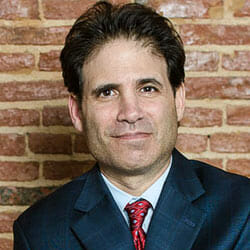Cosmetic Surgery and Medical Malpractice
 Cosmetic surgery, sometimes called plastic surgery, isn’t necessarily about vanity. Those who are scarred because of an accident, congenital deformities, an assault, or surgeries for cancer or other diseases, may need cosmetic surgery to look and feel normal again.
Cosmetic surgery, sometimes called plastic surgery, isn’t necessarily about vanity. Those who are scarred because of an accident, congenital deformities, an assault, or surgeries for cancer or other diseases, may need cosmetic surgery to look and feel normal again.
Or, imagine someone who has a facial or body feature that they find embarrassing or they feel is holding them back socially. Many studies have shown that good-looking people usually find better jobs and are paid more. As a species, we like the handsome or beautiful person more. It’s in our genes.
However, keep in mind that cosmetic surgery is also big business, with billions at stake for medical professionals. In 2015, 15.9 million cosmetic procedures, from the least invasive (such as a Botulinum Toxin, or Botox, injection) to general-anesthesia surgical procedures like breast augmentation, were performed in 2015. That’s an increase of two percent over 2014’s figures.
But What If Things Go Wrong?
Because surgery is surgery, cosmetic surgeons can be and are sued for medical malpractice. Imagine the heartbreak of someone who needs cosmetic repair because of a horrific car crash who wakes up from the procedure looking no better—or perhaps worse—than they did before. The vast majority of all cosmetic surgeons—indeed, all doctors—are competent, caring professionals who accomplish good work. But a small number of bad actors do real harm. Consider the following statistics:
- Only 5 percent of doctors are responsible for over half (54 percent) of all medical malpractice payouts.
- Only 8 percent of doctors who have paid out for two or more malpractice cases have undergone discipline from a state medical board.
- Only 17 percent—that’s one in six—doctors who have paid out for five or more malpractice cases have undergone discipline from a state medical board.
Choosing the right doctor and avoiding the bad actors are paramount when it comes to surgery, but with any surgery, of course, risks always exist. There are:
- Anesthesia complications, which can include pneumonia, strokes, and death
- Infections, which can worsen scarring and be fatal
- Uncontrolled blood loss, which can happen both during surgery and afterwards, causing a drop in blood pressure and resulting in death
- Deep vein thrombosis/pulmonary embolism, where blood clots form in the veins, break off, and travel to the lungs, often resulting in death.
But some complications happen more often in cosmetic surgery:
- Injuries to internal organs. Perforations or punctures are a likely complication of liposuction. Repair requires additional surgery, and perforations can be fatal.
- Nerve damage, which can be more common after cosmetic surgery. Of the women who undergo breast augmentation, 15 percent lose nipple sensation permanently.
- Unexpected scars. Cosmetic surgery is supposed to make a person look better, so scars can be upsetting. Hypertrophic scarring, characterized by abnormally thick, raised, red marks, occurs in about two to five percent of all breast augmentations.
- These are fluid that collects painfully beneath the skin and are the most frequent complication of a tummy tuck. Seromas can become infected and also can recur after they are drained.
- These are a pooling of blood under the skin, not unlike a large bruise. They are the most frequent complication of a facelift and happen in one to six percent of breast augmentations.
While a number of these complications can be caused by unfortunate circumstances, it doesn’t hurt to explore your options if you believe your surgery was botched due to negligence on the part of the doctor or other medical professional.
Cosmetic Surgery Law in Maryland
Maryland now regulates the locations where some of the riskier surgical procedures can occur. Problems have happened in the past with so-called “medspas” that were allowed to operate with no licensing or accreditation. There have also been problems in our state with people who were not medical doctors performing procedures, or doing procedures in an office setting that should have been done in a more formal medical setting. One doctor lost his license in 2011 after two of his patients died. The Maryland Board of Physicians commented that the surgeries should not have been performed in an office due to the great risk of complications for the procedures in question.
Maryland law also requires doctors who advertise their board certification to report their area of specialty, and the name of the board that certified them.
Proving negligence in cosmetic surgical cases is much like in any other medical malpractice case—certain points must be satisfied, such as showing that the physician failed to provide a minimum standard of care, and that the injury was caused by an error on the physician’s part.
Tips for Patients
If you are thinking of cosmetic surgery, be sure to keep the following suggestions in mind:
- Verify that the surgeon is board-certified in cosmetic surgery.
- Check the surgeon’s record with the state’s medical board.
- Make sure the surgeon has privileges at a nearby hospital. Hospitals check a physician’s record.
- Ask how many procedures the doctor has performed of the type you are having done.
- It’s safer not to have multiple procedures done at the same time.
If you have suffered injuries from a procedure done in Maryland by a negligent plastic surgeon, or if a loved one’s surgery was injurious or fatal due to negligence, the Law Offices of Steven H. Heisler stand ready to assist you.
A Skilled and Caring Medical Malpractice Attorney Can Help You
An experienced Baltimore medical malpractice attorney such as Maryland attorney Steven H. Heisler will be able to listen to the facts of your case, conduct a thorough investigation, and help you devise a legal strategy for obtaining compensation for your injuries. Due to the involvement of insurance companies and defendants who can afford a strong legal team, it’s a good idea to equip yourself with an attorney who has extensive experience when it comes to medical malpractice. Not every medical malpractice claim will hold up in court. However, the only way to determine this is through a thorough case review.
If you or a loved one has suffered as the result of what you believe to be medical malpractice, contact the law offices of The Injury Lawyer, Steven H. Heisler, today for a free initial consultation about whether you have a case at (410) 625-4878 or use our online contact form.

Attorney Steve Heisler
Steve Heisler decided in 1996 that he was going to focus his law practice exclusively on injury cases. Since then, he has been representing injured people against insurance companies, disreputable medical practitioners and Big Pharma, and doing it with compassion, honesty and level-headed rationality. [ Attorney Bio ]

